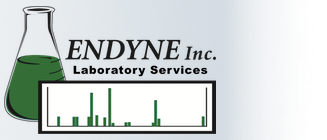There are many factors to consider when testing the water of your home or residence. Your location, the type of water source and the construction of the residence can all affect the quality of your drinking water. Springs and shallow wells are much more susceptible to bacterial contamination, and nearby agricultural land use can also affect the quality of the water. If you are on a municipal water supply (ie: town water) you can receive information about the chemistry of your water from your provider. However, even municipal water coming into your home interacts with certain types of piping and solder that can leach lead into your system. This can pose health concerns especially for young children and infants. Also, some people are known to have sensitivities to such things as chlorine, which is present in varying amounts in a public water supply.
Private Wells
There are no Federal regulations to test private water sources. Consequently, the quality of the water in a private well is almost always unknown. The recommended water quality tests for homeowners varies by state. Your state may have a recommended list on their Department of Health website. Coliform Bacteria testing is recommended on an annual basis for private domestic water sources. These tests are especially important for homes in rural areas where on-site septic systems operate or significant agricultural land use takes place near water supplies.
Endyne offers a variety of testing packages for private water sources and homeowners specific to their locations.
NOTE: The prices listed in the packages for each state below, only apply to samples collected in, and returned to that state’s particular lab. Prices between labs can vary due to accreditation requirements, subcontract costs, and other factors.
If you’ve had your water tested and the results for Total Coliform/E.coli are PRESENT or greater than 1, you may need to disinfect your well. Follow the link to see how.
Special Problems
The tests described above are only for common chemical constituents of water. If you suspect contamination form industrial pollution or hazardous waste, you may want to discuss it with our experienced staff. Reasons to suspect a problem include:
- Recent application of pesticides or herbicides in the area, or ongoing agricultural land use nearby.
- A dump site, landfill, industrial park, or gas station in your area.
Real Estate Agents and Homebuyers
Most banks and mortgage institutions require a potable water test for homes that have private water sources (wells or springs) to protect their interest at closing. In some instances, a Coliform Bacteria test is sufficient to meet this requirement. For FHA/VA loans, additional testing for nitrate, nitrite and lead are also required. We recommend submitting these samples as early as possible prior to the closing process. Some of the more complicated analyses can take up to two weeks to complete.



